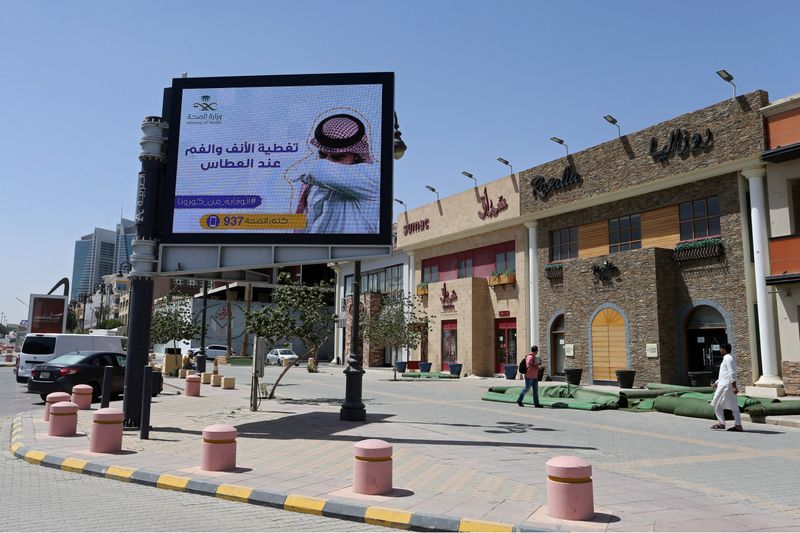RIYADH (Reuters) - Saudi Arabia announced on Tuesday that mosques would no longer accept worshippers for the customary five daily prayers and the weekly Friday prayer, in exceptional measures intended to help limit the spread of the coronavirus.
Prayers will continue only at the two holy mosques in Mecca and Medina, the holiest places in Islam, state news agency SPA reported, citing a decision from the Council of Senior Scholars, the kingdom's highest religious body.
Mosques will close their doors temporarily but continue to issue the ritual call to prayer, which will direct people to pray in their homes rather than come to the mosque, SPA said.
Islamic Affairs Minister Abdulatif al-Sheikh told state television that facilities for washing the dead at mosques that have them would remain open but access would be restricted to a few people. Praying over the dead will only be permitted at the cemetery, not in the mosque, he added.
Saudi Arabia, which reported 38 new infections, bringing the total to 171 with no deaths, has taken drastic measures to combat the spread of the coronavirus. Those include suspending the Umrah pilgrimage, halting all international flights, and closing schools and most public establishments.
The kingdom has also suspended work for all government employees, except those in the health, military and security sectors, and local media reported that the Council of Ministers had postponed its regular meetings for this week and next week.
Saudi Crown Prince Mohammed bin Salman spoke by phone with French President Emmanual Macron and Indian Prime Minister Narendra Modi to discuss global efforts to contain the coronavirus outbreak.
Neighboring Bahrain, which has reported 227 cases and the only death so far among the Gulf Arab states, announced measures to counter the economic fallout, including covering electricity and water payments for individuals and firms and exempting tourist facilities from taxes - both for three months starting in April.
The island kingdom's finance ministry also said it would double the size of its liquidity fund to 200 million dinars ($530 million) and that the central bank would raise banks' lending capacity by 3.7 billion dinars ($9.8 billion) to postpone installments or provide additional financing for clients.
Iran, which has emerged as an epicenter of coronavirus in the Middle East with more than 16,000 cases and 988 deaths, temporarily freed 85,000 people from jail, including political prisoners, in response to the epidemic.
